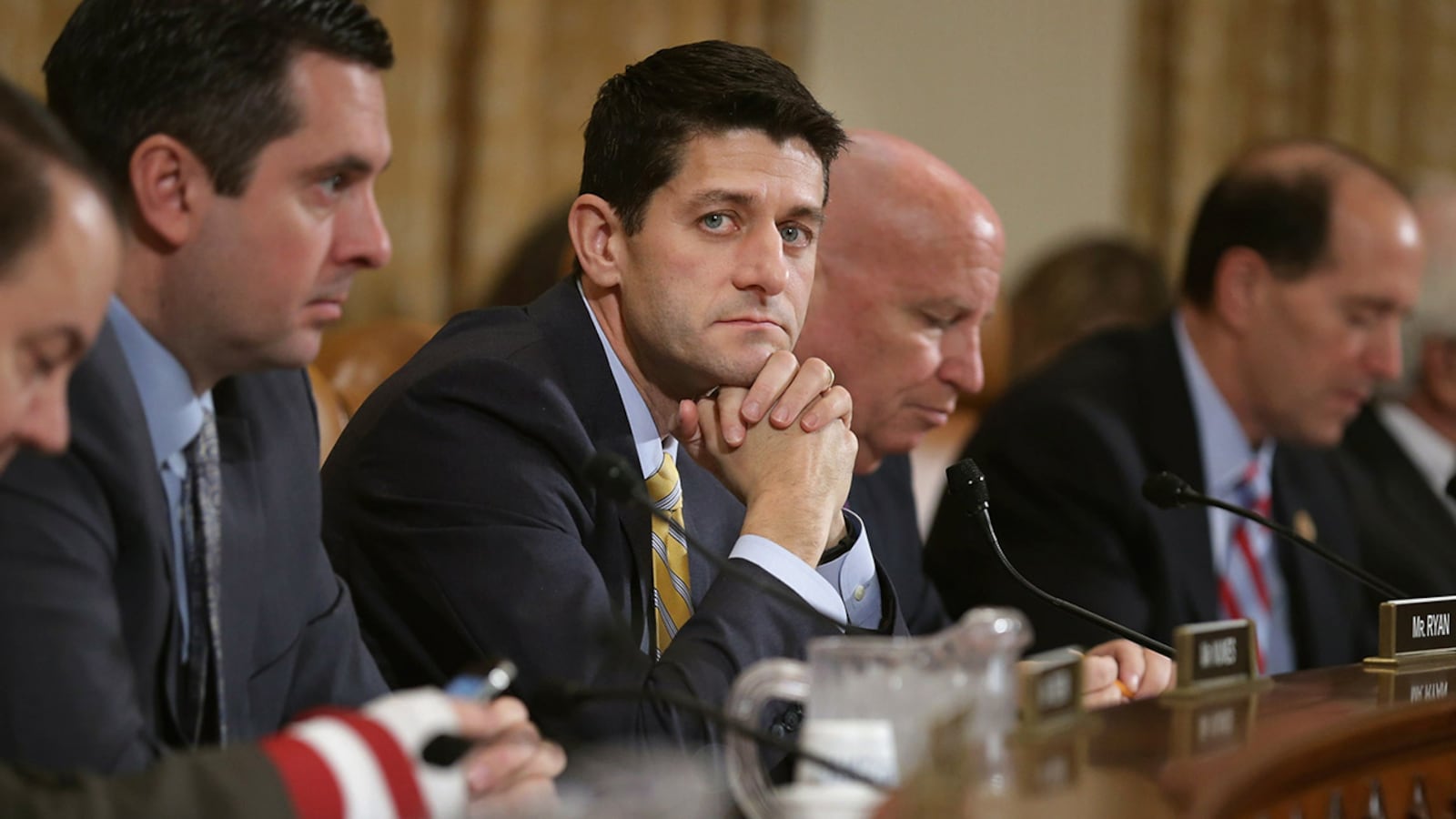
Last week was great for Paul Ryan’s reputation.
According to the conventional wisdom, the former vice presidential candidate has renounced his ideological opposition to the welfare state, and embraced a new role as the Great Budget Compromiser, who can bring Democrats and Republicans together to secure a sensible deal on spending.
The problem is that there’s not much to back this up. Yes, Ryan was able to sell House Republicans on a deal that lifted some sequester cuts in exchange for modest deficit reduction in other areas. But the Wisconsin congressman is still committed to an agenda that drastically reduces the role of government in building economic security, and he’s still willing to pander to the Republican base. To wit, the Wall Street Journal reports that Ryan has threatened to use the next debt ceiling increase as leverage for conservative priorities:
Rep. Paul Ryan (R-Wis.) on Sunday said Republicans will insist on more concessions for raising the debt limit in early 2014, indicating that the fiscal ceasefire he brokered in a budget deal may not last long.
“We don’t want nothing out of this debt limit,” Ryan said on “Fox News Sunday.” “We are going to decide what it is we can accomplish out of this debt-limit fight.”
Under the spending levels set by the Murray-Ryan budget agreement, it’s almost certain that the United States will have to authorize new borrowing. Despite this, the deal does not include an extension of the debt limit, which—conveniently—makes it possible for Ryan to threaten another stand-off.
It’s possible that this is just bluster; a way for Ryan to blunt conservative criticism by emphasizing his support for extreme measures. But even this reflects the extent to which the GOP has embraced legislative hostage taking. It doesn’t matter that Republicans have agreed to the spending in question—which implies a willingness to pay for that spending by raising the limit—as long as there is the potential to win by threatening the full faith and credit of the United States, the GOP will take the chance. Indeed, saber-rattling or not, we should take Ryan seriously. As a prominent leader in the Republican Party, his rhetoric matters—what he says will influence other lawmakers and officials.
One last point. Ryan’s debt ceiling threat is dangerous, but you shouldn’t read it as hypocrisy. For Republicans, the agreement takes “shutdown” off the table as a tactic, and precludes a repeat of the October debacle. For Ryan, Boehner, and others, there’s nothing hypocritical in crafting a deal, supporting it, and then embracing a different strategy for a different end.
What you should take away from Ryan’s rhetoric, however, is that he’s still committed to the procedural radicalism that’s defined the last three years of Republican legislative strategy. For him, and much of the GOP, it’s spending cuts by any means necessary, even ones that could provoke global economic catastrophe.






